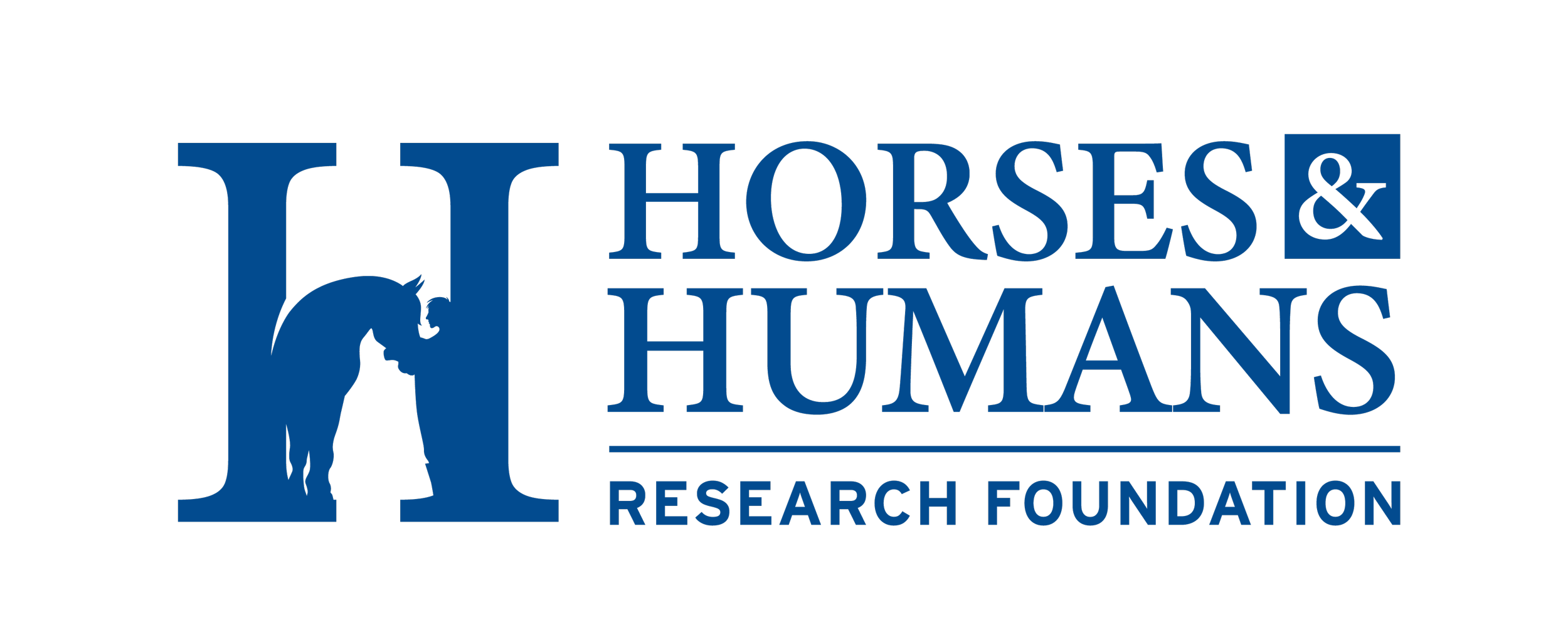Mental Health Awareness Month
Celebrating Mental Health Awareness Month
by Kathleen Choe
May is Mental Health Awareness month, a national designation founded by the non-profit organization Mental Health Awareness in 1949, whose tagline reads: “Turn Awareness into Action.” This aligns exactly with the mission of HHRF, whose goal of funding rigorous, ethical research into the ways humans and horses can meaningfully interact to enhance the well-being of both includes the necessary application of these research findings to the ways horses are handled and cared for, as well as how their interactions with humans are structured and designed in accordance with evidence based best practices, as opposed to “traditional” or well-meaning but mis-placed legends and lore about horsemanship and human psychology that have persisted besides findings that contraindicate their continued use.[1]
Developing new belief systems and changing people’s behaviors requires developing new neural pathways in the brain, which requires energy, time and repeated practice to form and begin to replace older, deeper ones that are well worn with repeated use. One of our greatest challenges in carrying out our mission is the difficulty we have as humans to let go of well-established neural pathways for our beliefs and ways of being in the world.[2] Change is hard! Disseminating research findings in accessible ways that make sense to the public and don’t feel too daunting, expensive, or difficult to apply requires creativity and perseverance as we seek to “speak the language” of those we are trying to reach, whether through infographics, podcasts, articles, books, posters, conferences, webinars, courses, or conversations.
Research shows that one of the most effective ways we influence each other is through relational connection. Hearing information from someone we trust and have a relationship with makes us more likely to both attend to and believe what is being shared. However, we have become increasingly polarized and siloed into echo chambers in our fractured world, surrounding ourselves with people who believe and behave in similar ways. We need to show up and speak up in environments where people may hold different views and convictions, to learn how and why they believe these things, to develop understanding of each other’s points of view and then try to find enough common ground to have civil discourse about the evidence based best practices they may be willing to hear about if we have established trust and respect.
Maya Angelou famously said, “When we know better, we do better.”[3] How can we do better without first knowing better? How can we know better if there isn’t research to help us find out what is truly better?
This month, with its focus on mental health awareness, is a wonderful time to learn more about the role HHRF plays in supporting the mental health of both horses and humans. To find out more, click here: www.horsesandhumans.org.
[1] LeBelle, F. “What is Welfare? A Qualitative Study in the Dutch Equestrian Community.” A thesis presented in partial fulfilment of the degree of Master of Veterinary Medicine at Utrecht University, November, 2023.
[2] facts-dont-change-minds-and-theres-data-prove-it
[3] Attributed to author Maya Angelou

